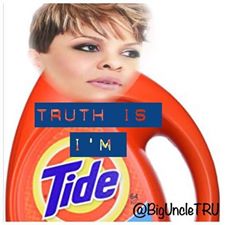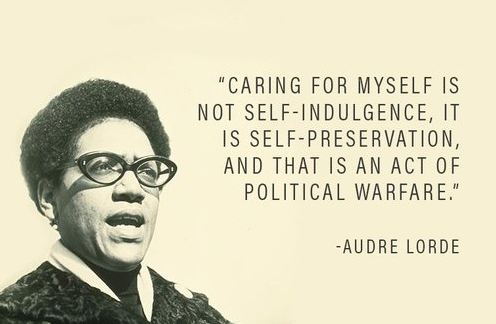Marginalized folks—Don’t Feel Guilty for Opting Out of Social Justice Movements

Posted by Nicole Gathany
March 10, 2020
Yesterday, I was talking with a former classmate who’s been working within the reproductive justice movement for the past 7 years but has recently taken a liking to the tech world. They reasoned their career shift by stating that “movement-building works like it did in the 1960s.” While this conversation provided me with better insight into their thoughts, I generally disagree with them. Movement building works- but we all need a break.

Truth is I’m tide… (tired, for those who don’t know old school ebonics- or AAVE as academics call it). Social advocacy work is, unfortunately, not emotionally, physically, or financially sustainable for most of us who do it.
As a queer black woman and sexual violence survivor from the southern United States, I got involved in reproductive justice work because of the way reproductive violence affects me.
I could not ignore the way that misogynoir prevents me from experiencing sexual freedom, the way my sexuality is consumed by others without my consent, the way that my sex education failed me, or the way that my religious education and cultural environment led me to believe that I was broken for exploring my sexuality, simply because I am not a cishet man.
And honestly, it’s kind harrowing to think that I’m responsible for cleaning up the mess made by institutions created to harmed me and pass down trauma such as white supremacy, sexism, slavery, anti-black racism, eugenics, and queerphobia.
In an ideal world, the people cleaning up the mess would be those who caused and benefited from it (cishet white men), but the truth is they probably never will. In a partially ideal world, those who are harmed by the mess would clean it up, but be fairly compensated in return. Unfortunately, neither of these situations are a reality.
Realistically, the most ideal situation we can achieve would be similar to a series of soccer matches. Social activists are playing against our opponents (those who are anti-choice, anti-voting rights, etc.). If we get tired (i.e. burnt out) or injured (i.e. disabled due to burn out), we can ask the coach to sub someone else in, walk off the field like Asher Allen, or retire like Michael Jordan.
Okay… I kind of ditched the soccer reference for general sports references but what I’m trying to say is this: we were never meant to do this work alone and it’s not sustainable for any of us to do it forever. Inspiring change while maintaining mental health requires a team effort and for us to keep making progress, sometimes we have to opt-out (either temporarily or permanently) and take time to take care of ourselves or our families.
Requiring distance from these spaces doesn’t mean we don’t care about them or that we can’t support other folks from the sidelines.
We can still support causes through actions like donations, retweets, or providing food to protestors. Or maybe we’re meant to be 3rd string and only play occasionally, volunteering once per week, once per month, or even once per year.

Regardless of our place in the activism realm, we must remember the words of Audre Lorde: “Caring for myself is not self-indulgence. It is self-preservation and that is an act of political warfare.”
Leave a Reply
You must be logged in to post a comment.

